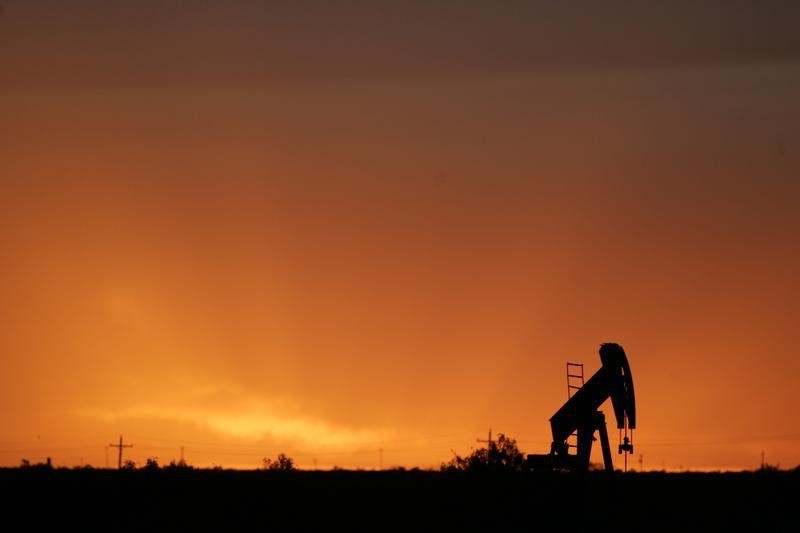By Gina Lee
Investing.com – Oil was down on Wednesday morning in Asia, with a build in U.S. crude oil supplies and the travel curbs to curb a new mutant strain of the COVID-19 virus putting pressure on already weak fuel demand.
Brent oil futures were down 1.06% to $49.30 by 9:06 PM ET (2:06 AM GMT), slipping below the $50 mark. WTI futures fell 1.68% to $46.23.
Tuesday’s data from the American Petroleum Institute showed a build of 2.7 million barrels in U.S. crude oil supply for the week ending Dec. 18. The build was bigger than the 3.25-million-barrel draw in forecasts prepared by Investing.com and the previous week’s build of 1.973 million barrels.
Investors now await crude oil supply data from the U.S. Energy Information Administration, due later in the day.
The B.1.1.7 strain of the COVID-19 virus, first recorded in the U.K., could possibly already have spread to neighboring countries such as France, Germany and Switzerland. More than 40 countries have shut their borders to the U.K. with only a few days until Christmas, with the Philippines banning all U.K. flights from Dec. 24 earlier in the day.
The travel curbs and restrictive measures already imposed by some countries already made a mark in oil markets. Brent contracts re-entered contango, a bearish pattern where the futures price of a commodity is higher than the spot price. Gazprom (MCX:GAZP) Neft CEO Alexander Dyukov also warned that global demand for oil liquids is set to return to pre-pandemic levels by early or mid-2022 at the latest.
“This sudden, panicked action by government around the world points to the risk of even more widespread lockdowns and travel restrictions well into the new year. Needless to say, that will slow down the recovery in global oil demand and is weighing on oil prices,” Raymond James & Associates Inc. energy research analyst Pavel Molchanov told Bloomberg.
Across the Atlantic, more than 18.2 million cases have been recorded in the U.S. as of Dec 23, according to Johns Hopkins University data. Currently, twice as many Americans have been hospitalized for COVID-19 than at any point in the pandemic, with COVID-19 vaccine doses for the general public still months away.
Meanwhile, the Senate passed a bill for the latest U.S. stimulus measures on Monday following its passage in the House of Representatives earlier in the day. However, President Donald Trump has threatened to veto the bill, which now awaits his signature to become law. Trump said on Tuesday that the bill should be amended to increase the amount in the stimulus checks.
